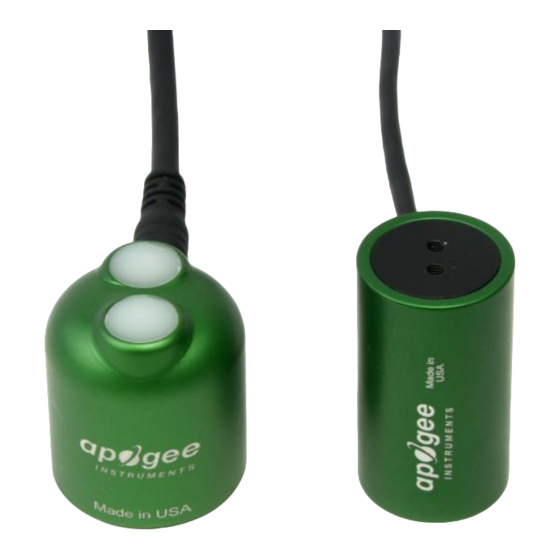- ページ 4
アクセサリー Apogee S2-121のPDF オーナーズマニュアルをオンラインで閲覧またはダウンロードできます。Apogee S2-121 16 ページ。 Pri sensors

INTRODUCTION
Radiation reflected from surfaces (e.g., plant canopies, soil) provides information about the state of the surface.
Reflectance is the ratio of radiation reflected by the surface to radiation incident on the surface.
A common index calculated from reflectance measurements is photochemical reflectance index (PRI). PRI is
calculated from reflectance at 531 nm (green) and 570 nm (yellow) and provides an indication of canopy
photosynthetic activity.
The typical application of PRI sensors is monitoring plant canopies. PRI is related to plant canopy light use
efficiency and is often used in studies of canopy photosynthesis and response to stress.
Apogee Instruments S2 series two-band sensors consist of a cast acrylic diffuser (upward-looking sensor) or acrylic
window (downward-looking sensor), pair of photodiodes that measure specific wavelength ranges, and signal
processing circuitry mounted in an anodized aluminum housing. A cable to connect the sensor to a measurement
device is also included. S2 series sensors are designed for continuous irradiance (upward-looking sensor) or
radiance (downward-looking sensor) measurements in indoor and outdoor environments. Reflectance derived
from paired upward-looking and downward-looking sensors can be used to calculate PRI. Apogee PRI sensors are
offered with digital SDI-12 output or with analog voltage output.
